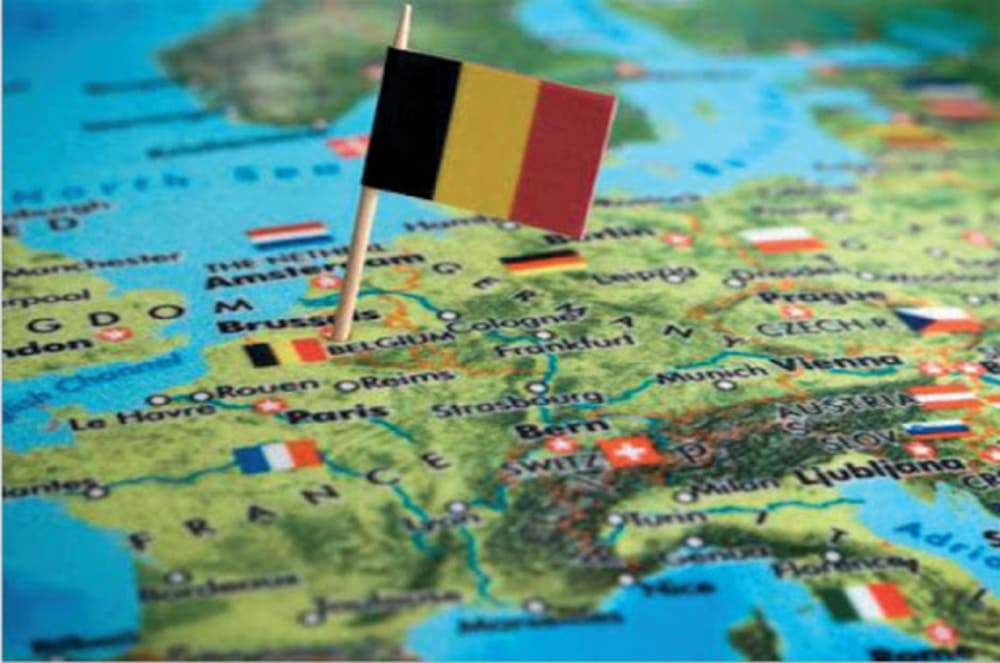Moving from England, what language do they speak in Belgium?

Moving from the UK to Belgium involves several changes, also in terms of communication. What languages can you speak in this country?
Moving from the UK, what language do they speak in Belgium?
For a small country whose motto is ‘Strength in unity’, Belgium is a bit of an anomaly. It has three official languages, Dutch (Dutch), French and German, and four official linguistic districts. But enshrined in the constitution is the freedom to speak any language. How did this come about? So which language should you use in Belgium?
In 1962, four linguistic areas were designated according to the common use of the language.
In the northern part of Flanders, where about 60% of the population lives, Dutch is the official language. South of an east-west line dividing the country south of Brussels, in the Walloon area, French is the official language. This leaves a small area to the east where German takes precedence. Brussels, an island in the Dutch-speaking Flemish area, is officially bilingual – French and Dutch.
Many Belgians speak at least two languages, most commonly Dutch (Dutch) and French, although English is also widely spoken in urban areas.
Why is Brussels bilingual?
Historically, Brussels speaks Dutch, but in the mid-19th century, when Belgium became independent, French was chosen as the national language. French became the language of the courts, administration, culture and the military. However, there were too many Dutch-speaking citizens in the area, so when Belgium was divided into four language zones, Brussels became bilingual, as did the 19 municipalities bordering Brussels.
Why do the Flemish people of Brussels protect their language?
There are 19 municipalities around Brussels where the local population is encouraged to speak Dutch (non-Dutch). There has been a large influx of French-speaking citizens, as well as foreigners. To protect their language in these areas, measures have been taken to encourage the use of Dutch and discourage the use of other languages. Local authorities use Dutch, traders are encouraged to work and advertise in Dutch, road signs are in Dutch, although tourist information centres and the airport may use three national languages as well as English.
One may ask whether English should become the fourth national language – but imagine the practical problems – stationary, signs, public services. It would just be too impractical.
Moving from UK to Belgium, what language in companies and hospitals?
Companies can use any language they want in their external dealings. However, in a company, internal language use and official documents must be in the official language of the region, although translations are allowed and even compulsory.
In Flanders, although in principle there is freedom of language, instructions, safety signs, written and even oral communication must be in Dutch. So your payslip, or your contract, will be in Dutch, but you can also get a translation. Your boss should speak to you in Dutch. Job interviews in Flanders must be in Dutch, but the interviewer can ‘test’ other language skills.
In the bilingual areas around Brussels, French as well as Dutch companies can use their own languages, but the authorities appreciate this as long as advertising is used in Dutch.
All other advertising and official documents in Flanders must be in Dutch. Hospitals and emergency services in Brussels must use Dutch and French; in other areas they use the language of the area. Public rest homes and hospitals in Brussels must provide assistance and documents in French and Dutch, although private rest homes are not legally obliged to use Dutch (Dutch).
Moving from the UK to Belgium, language in schools
In schools, children are taught in the language of the area. In Brussels, parents can choose whether to send their child to a Dutch or French school, and more and more subjects are taught in English.
Public schools can choose their language.
There are “immersion” schools in Wallonia. In these schools, some general subjects are taught in Dutch and the aim is to enable students to better benefit from the national languages,
In Flanders, there are several pilot programmes in which some general subjects are taught in another language,
Dutch lessons are held in Flanders to enable foreign children to learn the language sufficiently to follow the lessons.
The language in Belgium is quite complicated – you have to speak Dutch, somewhere you can speak French or English, and still in other regions German.
